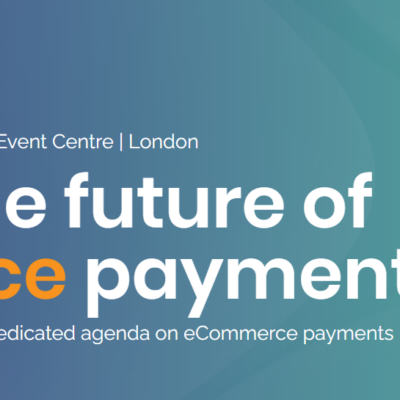Over six decades ago the Bank of America issued the first credit card, its success paved the way for banks around
the world to issue their own cards and the rise of cashless living has remained on an upward curve ever since.
Then came 2020, many Brits had already moved away from cash but a global pandemic forced those remaining into a
cashless life. Now, as we begin to return to some sense of normality, the question remains, will the UK become a
cashless society?
What are the pros and cons of a cashless society?
While there are many advantages to a cashless society, there are also several disadvantages which is likely why
we are yet to see a society completely eliminate the use of cash.
| Advantages | Disadvantages |
|
|
Advantages of a cashless society
- Lower crime rates Carrying cash, whether that’s on your person
or within your business, can make you more vulnerable to crime. Criminals can more easily access your money, and
it’s then difficult to track money theft once it’s left your wallet. - Creates an automatic paper trail Using cash is an easy way to
hide illegal transactions, whether that’s tax evasion or even purchasing illegal goods – criminals rely on cash
to hide these kinds of transactions. - Cash costs time and money According to access to cash,
Britain’s cash infrastructure costs around £5billion a year to run and for businesses handling cash it’s much
more time-intensive than card payments. - Easier to pay internationally In the past when travelling
abroad, you’d have to exchange your cash for the local currency, work out the best exchange rates and how much
money you’d need for your trip, whereas nowadays it’s all done for you with when you pay with a credit or debit
card. - More hygienic The covid-19 pandemic has highlighted the
importance of hygiene and as a result many businesses have banned cash payments, opting for cards instead.
Disadvantages of a cashless society
- Your privacy Is less secure Electronic payments leave a trail,
and while this brings many advantages is also means that your personal information is vulnerable to being
leaked. In a cashless society, we have to trust that our personal data is safe with the companies that we share
it with, because in the wrong hands this kind of data could be used against us. - Cashless transactions are open to hacking risks As technology
evolves and changes, so do our habits and with more people choosing to use digital payments, we’ve seen an
increase in online hackers. Hackers are criminals, who can access your bank account online and potentially take
large amounts of money without leaving a trace. - Technology could impact your access to money A completely
cashless society is reliant on technology. Glitches, breakdowns or even mistakes could leave you unable to
access your money, and with no alternative way to pay. - People spend more on card than with cash Various studies have
shown that people find it much harder to manage their finances with digital currency than they do with physical
cash. Many believe that the psychology of having to hand over your cash to someone else makes people less
inclined to do it. - Once we’re cashless there is no going back It’s taken hundreds
of years to build a global cash infrastructure, and so deciding to move away from this would be a significant
decision. Once this infrastructure has been removed, it would be hard to revert back.
Cash vs card in the UK
Today, across the United Kingdom there are over £70 billion worth of
banknotes in circulation, which is double the amount in 2011.
However, in 2017 debit cards overtook cash as the most used payment method in the UK for the first time ever.
This trend is not just confined to the UK either. In Sweden, cash payments have dropped from 40% in 2010 to just 9% last year and the country hopes to be entirely cashless by 2023.
It is not just cards that are vying for our transactions, but eWallets, cryptocurrency, direct debit, and
buy-now-pay-later financial arrangements. And their growth has been expedited as a result of the coronavirus
pandemic.
What impact has Covid had on cash?
Unsurprisingly, the pandemic hurt cash. Passed from person to person with no record or real hygiene its use
plummeted last year. Analysis of ATM withdrawals showed a 60% fall in use from March 2019 to March 2020. City centres and tourist hotspots saw the
biggest impact with withdrawals in London falling by 81%.
Research on the cleanliness of cash is still undetermined on the true risk it poses. The World Health
Organisation say that there is no greater risk of infection from cash than any other household item, but the
possibility played a significant role in a decline.
However, in reality, the impact only sped up a longer trend and the Government’s decision to raise contactless
limits to £100 later this year opens the door to weekly shoppers. By 2020 the UK was already ranked second for
eCommerce as a percentage of GDP and by 2026 it is expected that cash will account for a mere 0.5% of
transactions.
What is driving the change?
Research by UK Finance shows one in four spenders aged 16-34 live cashless as opposed to just 7% of all over-65s.
The generation of today are likely the first to be raised in a time of purely digital currency.
But there must be something more specific?
Many people point to the convenience of digital payments. The security measures, both on the side of the bank and
for those once walking with a wallet full of banknotes, are a plus but in modern society security at all levels
is complex and the simple answer to the question may simply be ease of use.
Adoption by banks also drives the move, there are now 135 million contactless cards in operation which covers 88%
of debit cards in the country. From this 83% of people in the UK use contactless payments with no group of people falling below 75%
use.
How will a cashless society impact retailers?
It is clear now that any business still taking cash only will fall behind its competitors. Although it is still
used today by a portion of the population, cashless living appears to be less than a decade away. So why should
businesses embrace this future? Here are a few reasons:
- Security Gone are the days of a loaded register and piles of
cash in the backroom presenting a possible target for thieves. - Fraud Employees handling purchases are given the responsibility
of checking each note to ensure it is legitimate. Despite stringent measures introduced by the Bank of England
fraudulent notes are still in circulation and could cause damage to your company if taken. - An option for everyone Once upon a time a shopper leaving their
wallet at home resulted in lost sales and an inconvenience to their day. Now, we have services such as Apple Pay
and Google Pay on our phones and even watches. If your POS system can’t handle these payments, it is lost
revenue. - Speed Not only is a tap on the card reader faster for your
customers, but for your finances too. No longer are deposits needed to move cash to the bank.
Online retailers, or high-street stores with a significant eCommerce presence, have an advantage when it comes to
capturing the purchases from this new generation of alternative finance. Interest free credit and buy-now-pay-later systems are the next steps before a cashless
economy can bloom in full. Meanwhile, other more traditional industries may feel the need to change with the times.
The real question perhaps is whether the UK can ever truly become a cashless society? It still seems
inconceivable to many of the current generation, but all signs point to yes. While we Brits still love to shop,
there’s a revolution coming and by the end of it… cash may no longer be king.




 Tweet
Tweet
 Facebook
Facebook


















